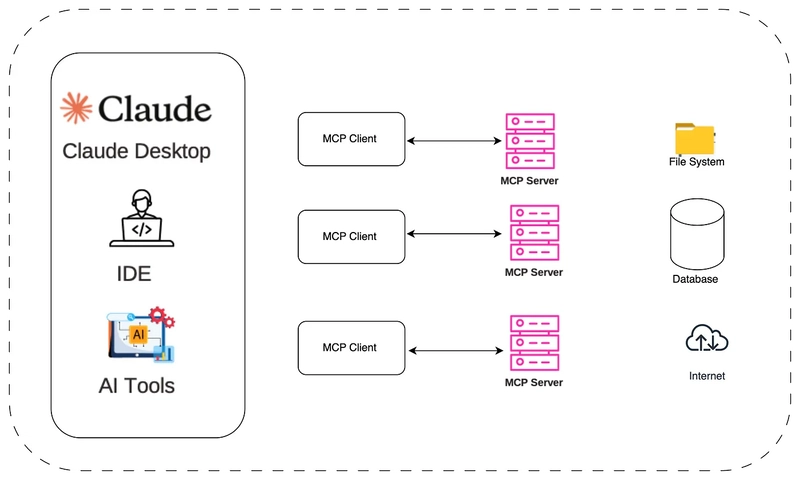How Does Database Management Improve Data Security?
In today's digital age, data security is a top concern for businesses and individuals alike. Database management plays a crucial role in ensuring that data is stored, accessed, and maintained securely. Let's delve into how effective database management can significantly enhance data security. Understanding Database Security Database security involves a collection of measures designed to protect data from unauthorized access, attacks, or misuse. It encompasses the processes and tools that protect sensitive information from external threats and internal vulnerabilities. Proper database management is integral to this process. Key Ways Database Management Enhances Data Security 1. Access Control One of the fundamental aspects of database management is defining who has access to the data and determining the level of access they require. By implementing strict access controls, database management systems (DBMS) can ensure that only authorized users can access specific data. This means setting permissions and roles to limit data exposure to only those who need it. 2. Data Encryption Database management systems often support various encryption protocols to protect data at rest and in transit. Encryption transforms data into a format that can only be read with a corresponding decryption key, thereby making it inaccessible to unauthorized users. Properly encrypted data significantly reduces the risk of data breaches. 3. Audit Trails Database management includes maintaining detailed logs or audit trails of all access and modifications made to the data. These records help in tracking any suspicious activity and are crucial for forensic investigations in the event of a data breach. They also assist in compliance with data protection regulations. 4. Regular Updates and Patches Regularly updating software and applying patches is a critical component of database management. These updates fix vulnerabilities and bugs that could otherwise be exploited by attackers. An up-to-date DBMS is less susceptible to known vulnerabilities, thus enhancing security. 5. Backup and Recovery A robust database management strategy involves regular data backups and an effective recovery plan. This ensures that in the event of data loss or corruption, data can be quickly restored to its original state, minimizing downtime and ensuring business continuity. Integrating Effective Database Management Practices For those using multiple databases in Laravel, it is essential to design a comprehensive database management plan that considers multi-database environments. Similarly, understanding efficient database storage techniques can aid in managing large volumes of data without compromising security. Using repositories like Git, as explained in maintaining simple databases in Git, can help in version control and secure management of database configurations. It's also beneficial to explore how tools like Laravel manage data efficiently. For instance, saving multiple table rows using Laravel demonstrates an efficient way to handle data operations securely. Moreover, exploring comprehensive tutorials like installing specific versions of PostgreSQL can enhance your understanding of customizing database environments in alignment with security needs. Conclusion Incorporating strong database management practices significantly bolsters the security of sensitive data. As cyber threats evolve, consistent application of these practices becomes even more crucial. By prioritizing and investing in robust database management, organizations can protect themselves against potential data security threats and ensure the integrity and confidentiality of their data. This article is structured to be SEO optimized, focusing on the keyword "database management improve data security," while naturally incorporating links to relevant resources for further reading on database management-related topics.

In today's digital age, data security is a top concern for businesses and individuals alike. Database management plays a crucial role in ensuring that data is stored, accessed, and maintained securely. Let's delve into how effective database management can significantly enhance data security.
Understanding Database Security
Database security involves a collection of measures designed to protect data from unauthorized access, attacks, or misuse. It encompasses the processes and tools that protect sensitive information from external threats and internal vulnerabilities. Proper database management is integral to this process.
Key Ways Database Management Enhances Data Security
1. Access Control
One of the fundamental aspects of database management is defining who has access to the data and determining the level of access they require. By implementing strict access controls, database management systems (DBMS) can ensure that only authorized users can access specific data. This means setting permissions and roles to limit data exposure to only those who need it.
2. Data Encryption
Database management systems often support various encryption protocols to protect data at rest and in transit. Encryption transforms data into a format that can only be read with a corresponding decryption key, thereby making it inaccessible to unauthorized users. Properly encrypted data significantly reduces the risk of data breaches.
3. Audit Trails
Database management includes maintaining detailed logs or audit trails of all access and modifications made to the data. These records help in tracking any suspicious activity and are crucial for forensic investigations in the event of a data breach. They also assist in compliance with data protection regulations.
4. Regular Updates and Patches
Regularly updating software and applying patches is a critical component of database management. These updates fix vulnerabilities and bugs that could otherwise be exploited by attackers. An up-to-date DBMS is less susceptible to known vulnerabilities, thus enhancing security.
5. Backup and Recovery
A robust database management strategy involves regular data backups and an effective recovery plan. This ensures that in the event of data loss or corruption, data can be quickly restored to its original state, minimizing downtime and ensuring business continuity.
Integrating Effective Database Management Practices
For those using multiple databases in Laravel, it is essential to design a comprehensive database management plan that considers multi-database environments. Similarly, understanding efficient database storage techniques can aid in managing large volumes of data without compromising security.
Using repositories like Git, as explained in maintaining simple databases in Git, can help in version control and secure management of database configurations. It's also beneficial to explore how tools like Laravel manage data efficiently. For instance, saving multiple table rows using Laravel demonstrates an efficient way to handle data operations securely.
Moreover, exploring comprehensive tutorials like installing specific versions of PostgreSQL can enhance your understanding of customizing database environments in alignment with security needs.
Conclusion
Incorporating strong database management practices significantly bolsters the security of sensitive data. As cyber threats evolve, consistent application of these practices becomes even more crucial. By prioritizing and investing in robust database management, organizations can protect themselves against potential data security threats and ensure the integrity and confidentiality of their data.
This article is structured to be SEO optimized, focusing on the keyword "database management improve data security," while naturally incorporating links to relevant resources for further reading on database management-related topics.









































































































































































![[The AI Show Episode 142]: ChatGPT’s New Image Generator, Studio Ghibli Craze and Backlash, Gemini 2.5, OpenAI Academy, 4o Updates, Vibe Marketing & xAI Acquires X](https://www.marketingaiinstitute.com/hubfs/ep%20142%20cover.png)


























































































































![[FREE EBOOKS] The Kubernetes Bible, The Ultimate Linux Shell Scripting Guide & Four More Best Selling Titles](https://www.javacodegeeks.com/wp-content/uploads/2012/12/jcg-logo.jpg)



![From drop-out to software architect with Jason Lengstorf [Podcast #167]](https://cdn.hashnode.com/res/hashnode/image/upload/v1743796461357/f3d19cd7-e6f5-4d7c-8bfc-eb974bc8da68.png?#)







































































































.png?#)




.jpg?#)
































_Christophe_Coat_Alamy.jpg?#)
 (1).webp?#)








































































































![Rapidus in Talks With Apple as It Accelerates Toward 2nm Chip Production [Report]](https://www.iclarified.com/images/news/96937/96937/96937-640.jpg)







































































































































